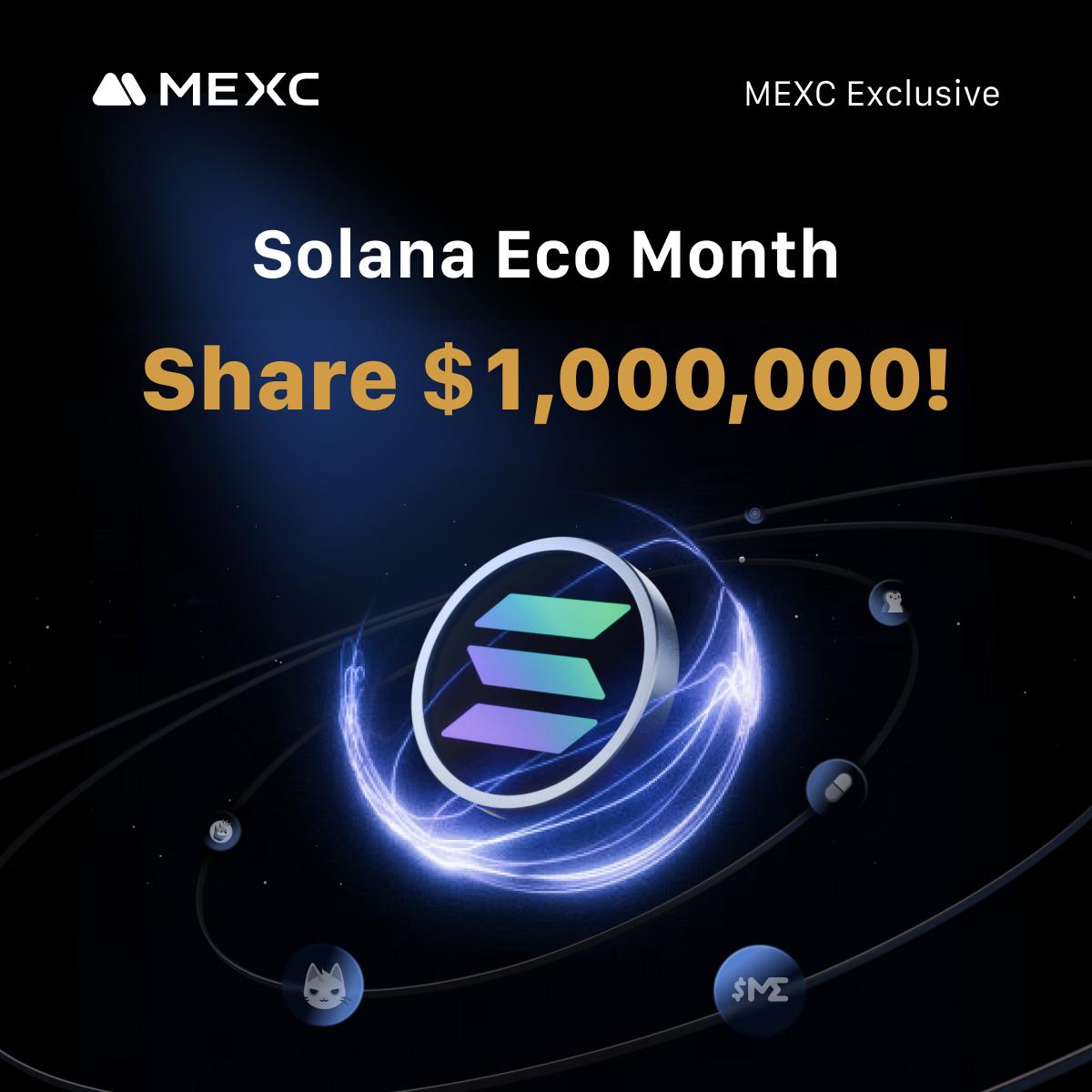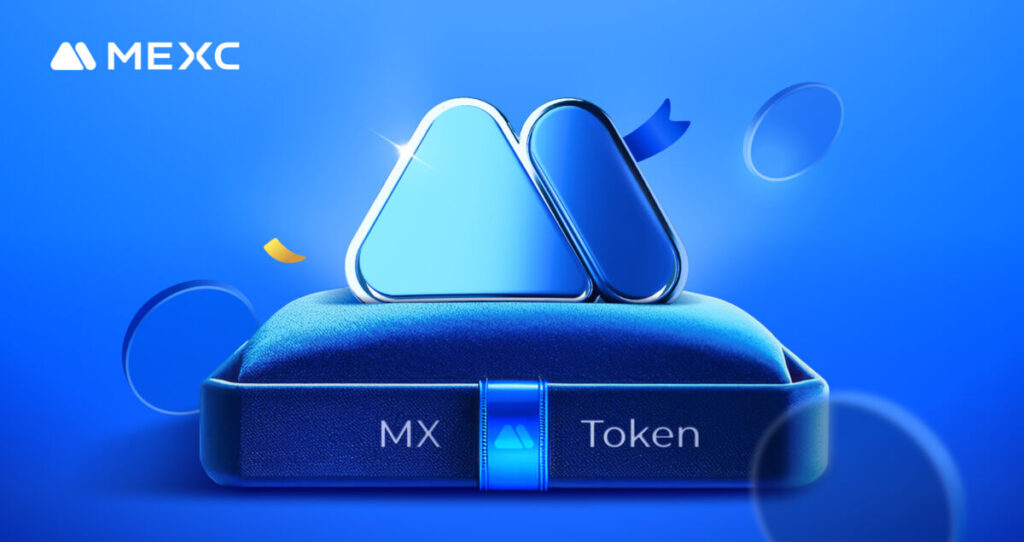
6 minute read
Is MEXC Banned in Nigeria? What You Need to Know
from MEXC
by Exness_India
If you’re a cryptocurrency enthusiast in Nigeria wondering “Is MEXC banned in Nigeria?”, you’ve come to the right place. The Nigerian crypto market has been booming in recent years, but regulatory uncertainty often creates confusion around which platforms are accessible.
This article answers your question directly and provides clear insights into the status of MEXC in Nigeria, helping you trade confidently and legally.

✅ Trade with MEXC now: Open An Account 👈
What Is MEXC?
Before diving into the ban issue, it’s important to understand what MEXC is. MEXC (formerly MXC Exchange) is a popular global cryptocurrency exchange known for its wide range of digital assets, user-friendly interface, and advanced trading features. It offers spot trading, futures, margin trading, staking, and more.
MEXC has gained rapid popularity, especially in emerging markets, due to its vast coin selection and relatively low trading fees. However, access to MEXC depends heavily on local regulations, which vary significantly by country.
Is MEXC Banned in Nigeria? The Straight Answer
No, MEXC is not banned in Nigeria. As of now, Nigerian users can access and use MEXC to trade cryptocurrencies without any direct legal restrictions from the Nigerian government or financial regulatory bodies.
This means Nigerians can create accounts on MEXC, deposit and withdraw funds, and execute trades. Unlike some exchanges that face explicit bans or restrictions, MEXC remains fully operational for Nigerian users.
Understanding the Nigerian Regulatory Environment
Nigeria has a complex relationship with cryptocurrency regulation. The Central Bank of Nigeria (CBN) issued a directive in February 2021 prohibiting banks and financial institutions from facilitating transactions involving cryptocurrencies. This move caused significant disruption for many crypto platforms and traders.
However, the CBN’s ban targets banks, not cryptocurrency exchanges directly. Crypto trading itself is not illegal in Nigeria, but accessing fiat on-ramps (Naira deposits and withdrawals through banks) became difficult after the directive.
While this affected many exchanges relying on Nigerian banks, MEXC operates primarily as a crypto-to-crypto exchange. This means users can trade cryptocurrencies directly without necessarily involving Nigerian banks, making it easier for Nigerians to use MEXC despite the banking restrictions.
How Nigerians Can Use MEXC Despite Regulatory Challenges
Even though Nigerian banks are restricted from facilitating crypto transactions, Nigerian traders still find ways to access platforms like MEXC by:
1. Using Crypto-to-Crypto Trading: Instead of depositing Naira directly, Nigerian users can fund their MEXC accounts with cryptocurrencies bought elsewhere or received from peer-to-peer platforms.
2. Peer-to-Peer (P2P) Platforms: Nigerians often use P2P services that connect buyers and sellers directly, bypassing banks. They buy stablecoins or other cryptos and then transfer them to MEXC for trading.
3. International Payment Methods: Some Nigerian users leverage international payment systems or third-party wallets to deposit and withdraw funds indirectly.
In summary, while local banking restrictions create hurdles, Nigerians can still trade on MEXC effectively using crypto-only transactions.

✅ Trade with MEXC now: Open An Account 👈
Why Is There Confusion About MEXC’s Status in Nigeria?
Several reasons contribute to the confusion around MEXC and similar exchanges:
· Misinterpretation of the CBN Ban: Many assume the bank directive means a total ban on crypto exchanges, but it primarily targets banks, not platforms.
· Lack of Clear Government Crypto Laws: Nigeria does not yet have comprehensive crypto legislation, causing mixed messaging from different authorities.
· News and Social Media Misinformation: Rumors and inaccurate reports circulate widely, leading users to believe certain exchanges are banned when they are not.
Therefore, always rely on official statements and verified sources when checking the status of any exchange.
Comparison With Other Exchanges in Nigeria
Some exchanges face stricter access issues in Nigeria. For example, Binance, one of the largest global exchanges, was previously flagged by the CBN for certain regulatory violations. Although Binance is not banned outright, Nigerian users have experienced account restrictions and withdrawal difficulties at times.
In contrast, MEXC has remained accessible and has not faced any explicit government or regulator bans in Nigeria, making it a safer bet for Nigerian traders looking for stable access.
Security and Compliance Measures by MEXC for Nigerian Users
MEXC understands the importance of compliance and security, especially in regions with evolving regulations. The platform employs:
· KYC (Know Your Customer) Procedures: Nigerian users must verify their identity to comply with anti-money laundering (AML) laws.
· Data Privacy Protections: MEXC follows global standards for user data protection, ensuring Nigerian traders’ information is safe.
· Robust Security Protocols: To protect users from hacks and fraud, MEXC uses two-factor authentication (2FA), cold wallet storage for funds, and continuous monitoring.
These efforts reinforce MEXC’s reputation as a reliable exchange for Nigerian users.
What Should Nigerian Crypto Traders Keep in Mind?
Even though MEXC is accessible, Nigerian traders should be aware of some important factors:
· Volatility and Risks: Cryptocurrency trading is inherently risky. Market swings can lead to losses, so trade carefully and educate yourself.
· Regulatory Changes: The Nigerian crypto regulatory landscape is evolving. Stay updated with government announcements that might impact crypto access.
· Deposit and Withdrawal Limitations: Without direct bank support, funding your MEXC account with Naira requires alternative methods like P2P or third-party services.
· Tax Implications: Nigeria has no clear crypto tax laws yet, but this could change. Keep track of your trades for future tax compliance.
By keeping these points in mind, Nigerian traders can safely navigate the crypto space.
Steps to Start Trading on MEXC from Nigeria
If you’re convinced MEXC is the right platform, here’s a simple guide to get started:
1. Sign Up on MEXC: Visit the official MEXC website and register with your email and password.
2. Complete KYC Verification: Upload valid identification documents to unlock full trading features.
3. Fund Your Account: Deposit cryptocurrencies through P2P purchases or transfers from other wallets.
4. Explore Trading Options: Choose from spot trading, futures, or staking based on your preference.
5. Start Trading: Execute trades, monitor the market, and manage your portfolio within MEXC’s platform.
Conclusion: MEXC Remains a Viable Choice for Nigerian Crypto Traders
In summary, MEXC is not banned in Nigeria. Despite the Central Bank of Nigeria’s banking restrictions on crypto transactions, MEXC operates as a crypto-to-crypto exchange and remains accessible to Nigerian users.
This makes MEXC a popular and reliable platform for Nigerians looking to trade a wide range of cryptocurrencies without interruption. However, traders should remain cautious about the risks involved and stay updated on any future regulatory changes.
By choosing MEXC and using proper funding methods, Nigerian crypto enthusiasts can continue to participate actively in the global crypto market without legal concerns.
✅ Trade with MEXC now: Open An Account 👈
Read more:








